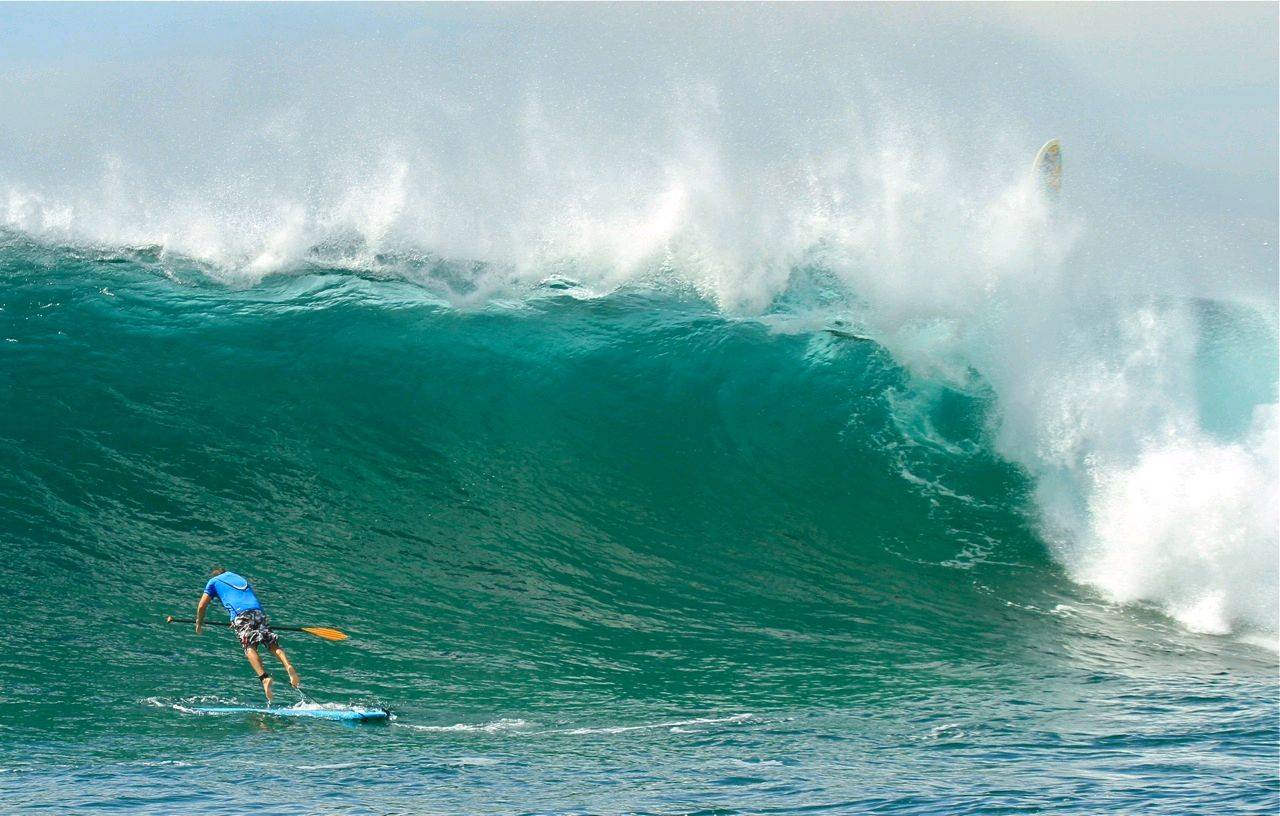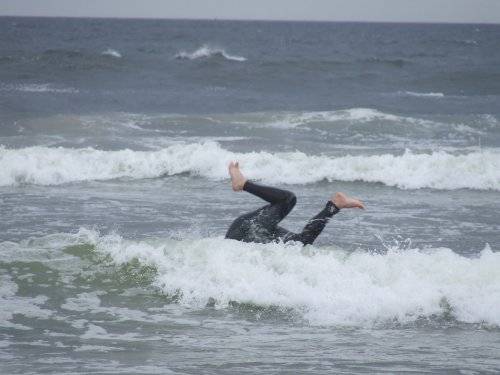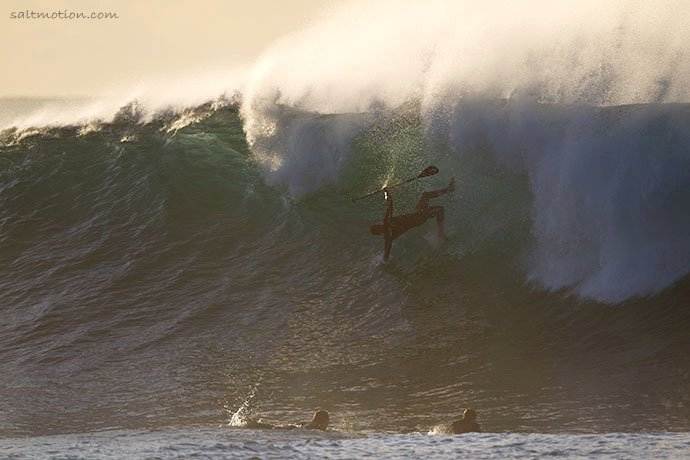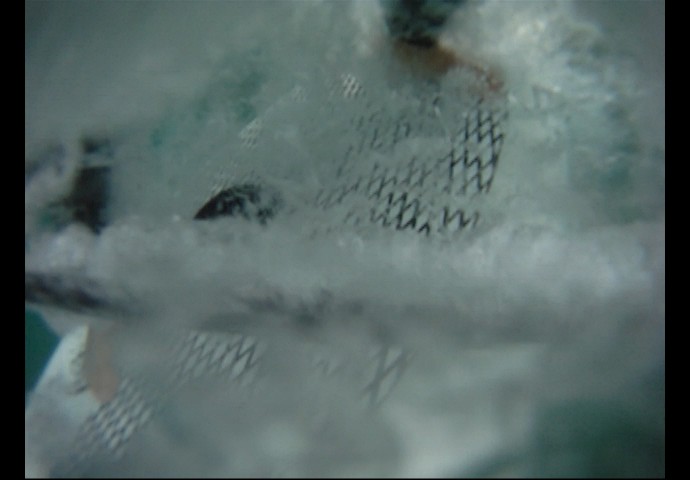How to handle whitewater on your SUP
Surfing on a stand up paddle board has its own unique set of challenges, especially when it comes to the inevitable wipeout. While there's no easy way to wipeout, these few tips will help you on your way to safe and painless stand up paddle surfing - remember though, if it comes down to you and the ocean, expect to pay your dues at some point.

Dive, dive, diiiiiive!
If you're choosing to dive under the whitewater - never, EVER jump backwards. Always dive over the side of the board (or over the front) just before you get to the whitewater.
If you dive backwards, it's going to hurt - because the board is going to get washed back into either your face, or your butt.
And .. beware on surfacing, if there was any load of your leash. Buoyant paddle boards will load up your leggie as the wave passes, and may be hurtling towards you when you surface.

Shoulda' held his board behind him!
This goes along the same lines as the first tip, and is probably the most common cause of injuries in the surf (on all surf craft). You'd be surprised at how much power even the smallest waves have.
If you have your SUP between the wave and you - you're going to lose, because that wave's going to push the board into your body, and thats going to hurt. Even at the end of the day when you're in the froth by the beach, a loaded up board can do plenty of damage to your legs. When you you're walking out through the surf, keep the board beside or behind you.

Tip 3: Hang onto your paddle.
If you have your SUP between the wave and you - you're going to lose, because that wave's going to push the board into your body, and thats going to hurt. Even at the end of the day when you're in the froth by the beach, a loaded up board can do plenty of damage to your legs. When you you're walking out through the surf, keep the board beside or behind you.

Hang onto your paddle
When you bail, don't worry about the board! It's already attached to your ankle. Hold on to your paddle by the handle - this lets the wave pull the blade towards the beach, alleviating stress on the shaft and allowing you to push through the whitewater with no drag.
It also stops the waves from snapping your fancy carbon paddle in half due to the stress on each end.
Tip 4: You can use your paddle as a brake
If you've dived under a powerful wave & are getting dragged along, hold your paddle as if you're holding it over your head - the blade will as a break, and slow down your speed / reduce how far you get dragged.

Tip 5: Stay calm..
It also stops the waves from snapping your fancy carbon paddle in half due to the stress on each end.
Tip 4: You can use your paddle as a brake
If you've dived under a powerful wave & are getting dragged along, hold your paddle as if you're holding it over your head - the blade will as a break, and slow down your speed / reduce how far you get dragged.

Stay calm during a wipeout
One of the most common times you'll start to panic, is when you're being tumbled around on the sea floor. You might be in a mess of leg rope, paddle, rashie and huge stand up paddle board, but - it will all be ok... People float, waves all stop eventually, and you'd be surprised at how much longer you can hold your breath when you're cool, calm and collected.
If you're being held under longer than you hoped, relax. The more you fight and battle, the more oxygen you need, and the more carbon dioxide you create. Especially using the legs, which are the biggest consumers/producers. Go with the flow as best you can until it settles, and calmly make your way to the surface.
If you're being held under longer than you hoped, relax. The more you fight and battle, the more oxygen you need, and the more carbon dioxide you create. Especially using the legs, which are the biggest consumers/producers. Go with the flow as best you can until it settles, and calmly make your way to the surface.















